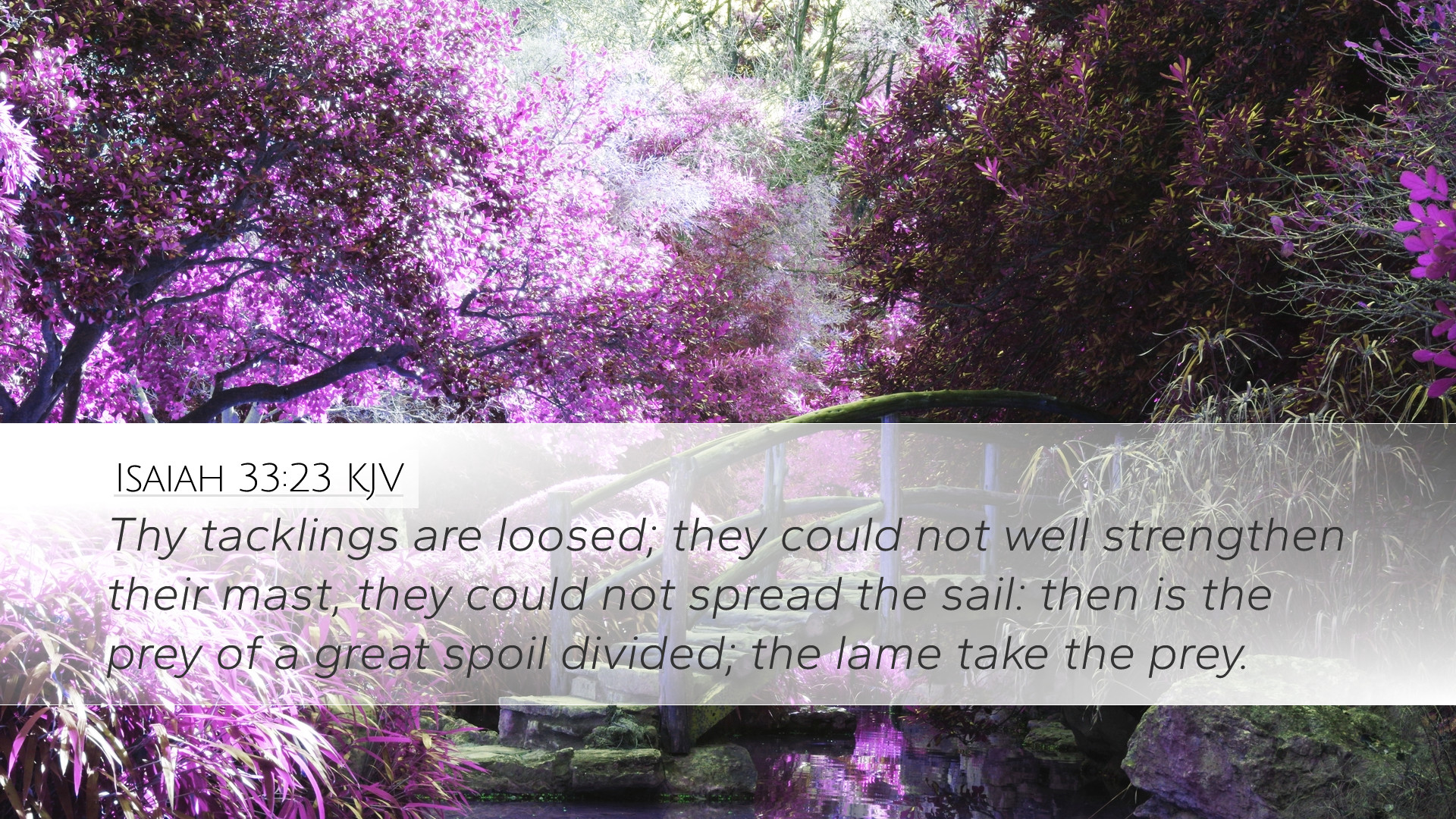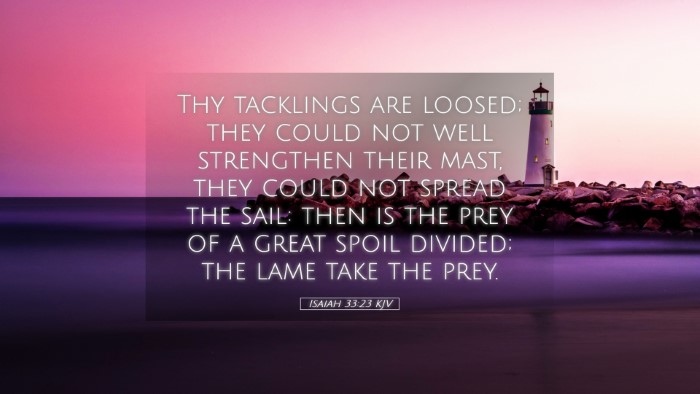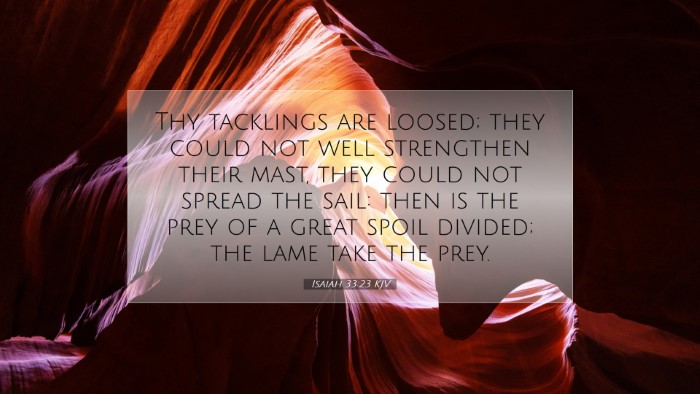Commentary on Isaiah 33:23
Isaiah 33:23 states: "Your tacklings are loosed, they could not well strengthen their mast, they could not spread the sail: then is the prey of a great spoil divided; the lame take the prey." This verse is rich in imagery and metaphor, revealing deep theological and practical implications that are relevant for pastors, theologians, and students of the Scripture.
Contextual Background
This verse resides within the broader context of Isaiah’s prophecies, particularly related to the judgments and eventual restoration of Israel. Understanding the historical backdrop of Assyrian threat, the siege of Jerusalem, and the geopolitical dynamics of the time is crucial for an accurate interpretation.
Commentary Insights
1. Imagery of Maritime Distress
Isaiah employs nautical imagery to express the failure of human systems of defense and support. The terms "tacklings," "mast," and "sail" relate to a ship’s structure and function, suggesting that without proper support systems, survival is compromised. Matthew Henry notes that when the source of strength (the mast) is compromised, it leads to the inability to navigate through life's adversities.
2. Divine Judgment and Human Vulnerability
This verse aligns with the larger theme in Isaiah regarding the judgment upon nations who do not recognize God’s sovereignty. Albert Barnes points out that the mention of "loosed tacklings" signifies how God allows the efforts of the ungodly to become futile, emphasizing humanity's ultimate dependence on divine strength.
3. The Great Spoil
When Isaiah mentions "the prey of a great spoil divided," it hints at the ultimate victory of God over the enemies of Israel. Adam Clarke elaborates that while those who rely solely on their strength face failure, the spoils of victory will belong to those who trust in God. The humble and the ‘lame’ refer to those who are weak in their own strength but find hope in divine intervention.
Theological Themes
1. Dependence on God
The metaphor of a ship facing turmoil may represent the lives of individuals who navigate through life's trials. The lesson here is clear: true strength and safety come from God. Henry expresses that it is essential for believers to acknowledge their vulnerabilities and rely on God's power, especially in times of distress.
2. God’s Sovereignty over All
The message resounds with the truth of God’s sovereignty, revealing the futility of human efforts against divine will. Barnes underscores that the defeat of the mighty and the triumph of the weak signify God’s role as the ultimate judge who upholds justice and mercy.
3. Restoration and Hope
Despite the imagery of failure and vulnerability, there is an underlying message of restoration. The ‘lame’ receiving the spoils symbolizes how God’s grace elevates those who are weak. Clarke encourages readers to hold onto the hope of divine restoration, propelling them from despair to strength in God’s providence.
Application for Today’s Believers
- Embrace Vulnerability: Acknowledge that human weaknesses lead us to rely on God's strength.
- Recognize Divine Sovereignty: Trust in God's plan, even when circumstances appear dire.
- Hope in Restoration: Encourage those who feel weak or defeated; God's grace will elevate them in His timing.
Conclusion
Isaiah 33:23 serves as a poignant reminder of the human condition and the unfailing nature of God’s providence. Through the commentary of respected theologians, we gain insights that are both profound and applicable to modern-day faith journeys. It challenges us to reconsider our sources of strength and urges us to lay our anxieties before the one who holds ultimate authority over all. In every season of life, whether facing trials or triumphs, we must remember that God remains our unfailing support and source of hope.


